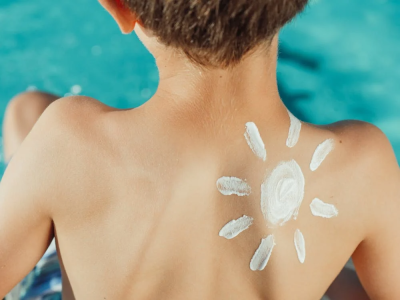‘They can be described as only theoretical’: So why are sunscreen rules changing?
By
Maan
- Replies 4
Some of Australia's favourite sunscreen brands may be facing major changes.
A safety review has cast fresh light on certain chemicals used in these popular products.
Could your go-to sunscreen soon be reformulated?
Some of the country’s most widely used sunscreens could be reformulated following a safety review by the Therapeutic Goods Administration (TGA).
The review focused on two active ingredients—homosalate and oxybenzone—and a by-product called benzophenone.
These ingredients have long been used to block UV rays, but international studies suggested they may disrupt hormones when used in very high doses over extended periods.
TGA’s chief medical adviser, Professor Robyn Langham, said the concerns remained theoretical.
‘The risks that have been identified in some of these studies have been demonstrated only in animals, and only with very high use of product over a prolonged period of time,’ Langham said.
‘They can be described as only theoretical, in terms of their risks to humans.’
Brands currently using homosalate in their sunscreens include Banana Boat, Nivea, Bondi Sands, Woolworths and Coles-branded products, and the Cancer Council.
The Cancer Council reaffirmed its confidence in the safety of Australian sunscreens.
‘Cancer Council welcomes developments in evidence, technologies and regulations that improve the regulation of sunscreens,’ it said.
‘The TGA has confirmed Australians do not need to change their use of sunscreens, and Cancer Council encourages all Australians to use sunscreen as one of the five forms of sun protection when the UV Index is three or above.’
Brisbane-based dermatologist Dr Shobhan Manoharan said a reduction in allowable ingredient levels was likely.
‘The US and Europe have dropped their concentrations on these and I suspect that’s the trend we’ll see in our local market as well,’ Manoharan said.
He added that alternatives were available for those with allergies or sensitive skin.
‘If the patient has allergies or sensitive skin or really doesn’t want to expose themselves to any of these agents, there are some outstanding physical blockers with zinc or titanium in them, and they can use that as an alternative instead.’
As the TGA moves forward with the review, the broader sunscreen market may be headed for reformulation—though for now, the message to Australians remains the same: don’t skip the SPF.
While the TGA review focused on the safety of sunscreen ingredients, concerns about product performance have also made headlines.
In a separate investigation, several well-known sun care brands were found to fall short when it came to delivering the protection they claimed.
It’s a timely reminder to double-check what’s in your sunscreen—and whether it’s doing the job you expect.
Read more: New research exposes Aussie sun care brands failing to deliver protection

Even with potential changes on the horizon, the advice remains clear—protecting your skin from the sun is still essential.
A safety review has cast fresh light on certain chemicals used in these popular products.
Could your go-to sunscreen soon be reformulated?
Some of the country’s most widely used sunscreens could be reformulated following a safety review by the Therapeutic Goods Administration (TGA).
The review focused on two active ingredients—homosalate and oxybenzone—and a by-product called benzophenone.
These ingredients have long been used to block UV rays, but international studies suggested they may disrupt hormones when used in very high doses over extended periods.
TGA’s chief medical adviser, Professor Robyn Langham, said the concerns remained theoretical.
‘The risks that have been identified in some of these studies have been demonstrated only in animals, and only with very high use of product over a prolonged period of time,’ Langham said.
‘They can be described as only theoretical, in terms of their risks to humans.’
Brands currently using homosalate in their sunscreens include Banana Boat, Nivea, Bondi Sands, Woolworths and Coles-branded products, and the Cancer Council.
The Cancer Council reaffirmed its confidence in the safety of Australian sunscreens.
‘Cancer Council welcomes developments in evidence, technologies and regulations that improve the regulation of sunscreens,’ it said.
‘The TGA has confirmed Australians do not need to change their use of sunscreens, and Cancer Council encourages all Australians to use sunscreen as one of the five forms of sun protection when the UV Index is three or above.’
Brisbane-based dermatologist Dr Shobhan Manoharan said a reduction in allowable ingredient levels was likely.
‘The US and Europe have dropped their concentrations on these and I suspect that’s the trend we’ll see in our local market as well,’ Manoharan said.
He added that alternatives were available for those with allergies or sensitive skin.
‘If the patient has allergies or sensitive skin or really doesn’t want to expose themselves to any of these agents, there are some outstanding physical blockers with zinc or titanium in them, and they can use that as an alternative instead.’
As the TGA moves forward with the review, the broader sunscreen market may be headed for reformulation—though for now, the message to Australians remains the same: don’t skip the SPF.
While the TGA review focused on the safety of sunscreen ingredients, concerns about product performance have also made headlines.
In a separate investigation, several well-known sun care brands were found to fall short when it came to delivering the protection they claimed.
It’s a timely reminder to double-check what’s in your sunscreen—and whether it’s doing the job you expect.
Read more: New research exposes Aussie sun care brands failing to deliver protection
Key Takeaways
- The TGA reviewed the safety of homosalate, oxybenzone, and benzophenone in sunscreens.
- Concerns relate to possible hormone disruption from prolonged high-dose use, but only in animal studies.
- Brands including Banana Boat, Nivea, Bondi Sands, and Cancer Council use the reviewed ingredients.
- Experts believe Australia may follow the US and Europe in reducing allowable concentrations.
Even with potential changes on the horizon, the advice remains clear—protecting your skin from the sun is still essential.








